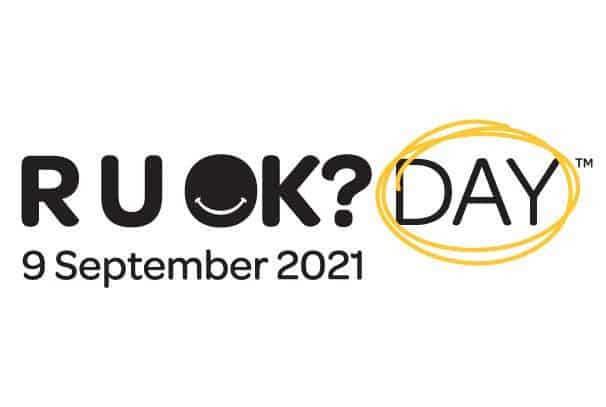With millions of Australians still in lockdown and others affected by border closures and facing the difficulty of the unknown, it's never been more important to ask a person you know (or may not know) R U Ok?

While R U OK? Day only happens annually, the charity believes people will keep checking in on their loved ones, colleagues, friends, and acquaintances when they can, especially after the challenges after the 2 years.
This year’s R U OK? Day theme is ‘Are they really OK? Ask them today’.
Research has shown that around 22% of Australians don’t reach out to check on the people around them because there hasn’t been an occasion where they felt someone needed their help. However, a regular check-in, or just starting the conversation – even when someone is not visibly distressed or in crisis – can make a real difference.

The conversation about mental health need not be difficult, it is as simple as asking if someone is okay, listening to them, encouraging action, and checking back in.
As much of the country faces restrictions to lower the risk of COVID-19, numerous other issues are testing our resilience as individuals and collectively. Whether it is fear for our physical health, uncertainty around businesses, employment, or school, sadness over missed things like a holiday, a birthday, or a wedding, or grief over lost loved ones, we are all carrying a significant emotional load.

In 2021, we know that an honest answer to ‘are you okay?’ is likely to be ‘no, I’m not’ and that is okay, it’s understandable in these circumstances. But it is not something that has to be carried alone.
Help is available.
Anyone experiencing distress can seek immediate advice and support through Lifeline (13 11 14), Kids Helpline (1800 55 1800), or the Government’s digital mental health gateway, Head to Health (www.headtohealth.gov.au).
A record $6.5 billion will be spent on mental health and suicide prevention services and supports in 2021–22, doubling since 2012–13.
 The basic steps for reaching out (according to the organization) are:
The basic steps for reaching out (according to the organization) are:
1. Ask, “R U OK?”
2. Listen properly, without being distracted.
3. Encourage action.
4. Check-in regularly and sincerely.
For more information, click here.
